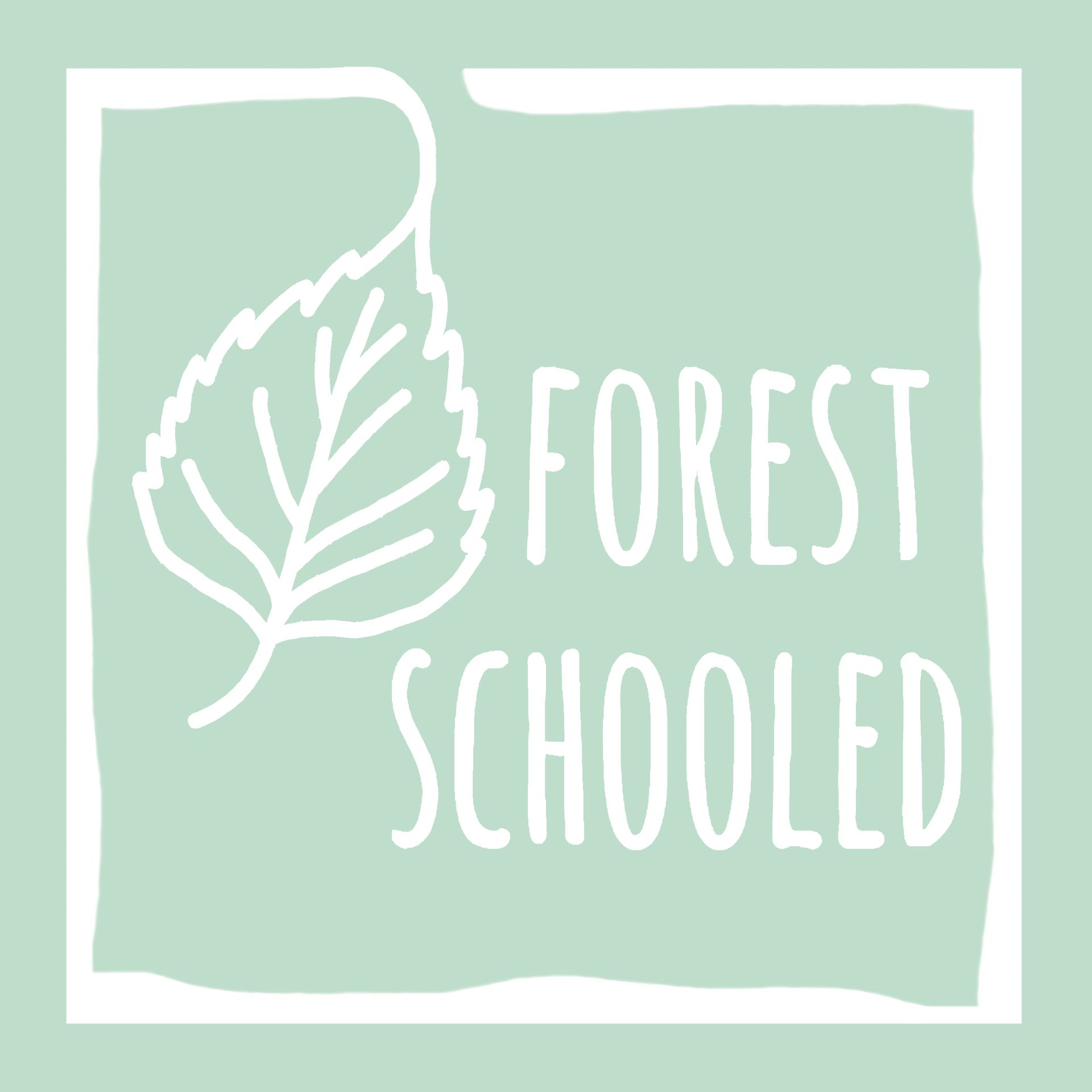
Blog
Stories from my personal journey learning about and delivering Nature-rooted programs across three different countries
Intervening in Children's Play...
Caylin (Forest Schooled)
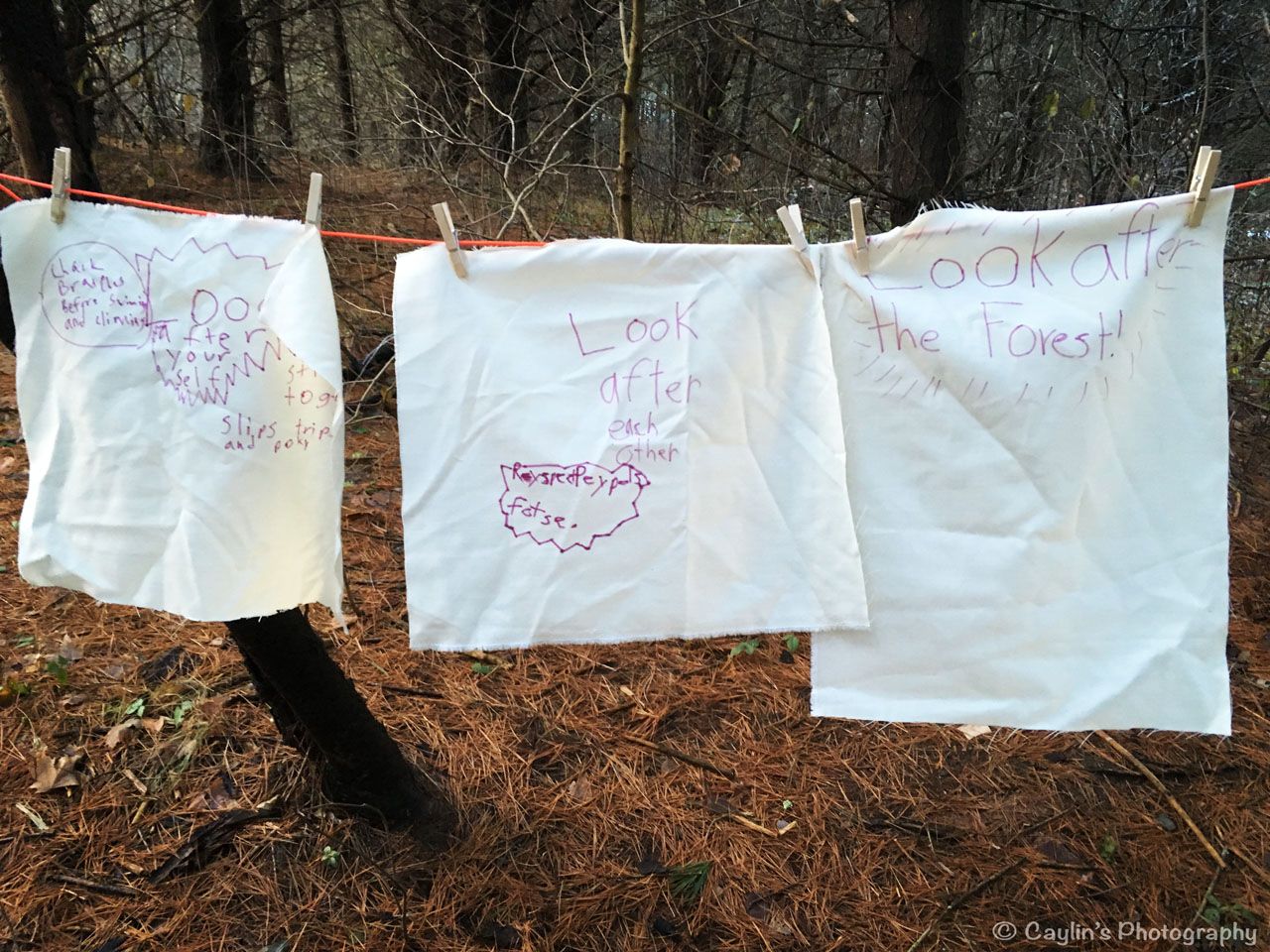
Empty space, drag to resize
This is a tough one for me to write, but here goes...
One of my missions in Forest School and even through writing this blog has been to advocate for and provide opportunities for children to play... to play freely, with autonomy, and the time to pursue their own ideas and inspirations without adult interference. This is because adults can often, and unintentionally, interfere A LOT. And this can sometimes disempower children and prevent them from learning to their fullest potential. Dedicating time and space for children to play is important. But... what happens when that play turns destructive and mean?
This is what I perceived to be happening at Forest School recently as I observed a group of children's rough and tumble play get rougher and rougher to the point that, well, I intervened.
Previously the group had been struggling to get along at times. There had been occasions where they would call each other names and exclude one another from games and activities. I had also witnessed some play that included tearing out plants from the ground and discarding them without even a thought of using them. I perceived this as destructive, unsustainable, and ultimately unethical as companions in this living, breathing forest habitat.
So we'd had some discussions to address these issues during group meetings - sometimes initiated by the children themselves who wanted to bring awareness to how certain actions had made them feel upset and hurt. And I also decided to write a story to help facilitate deeper thought and discussion. The story is called Grumpkin the Elf & The Beech Tree and it describes a grumpy elf who learns that anger and hurtful words can have a much greater impact than he realized. He also discovers he has power over his own actions and words in order to handle strong emotions he originally thought were caused by others. You can download a copy of the story Grumpkin the Elf & The Beech Tree here and you're welcome to use it.
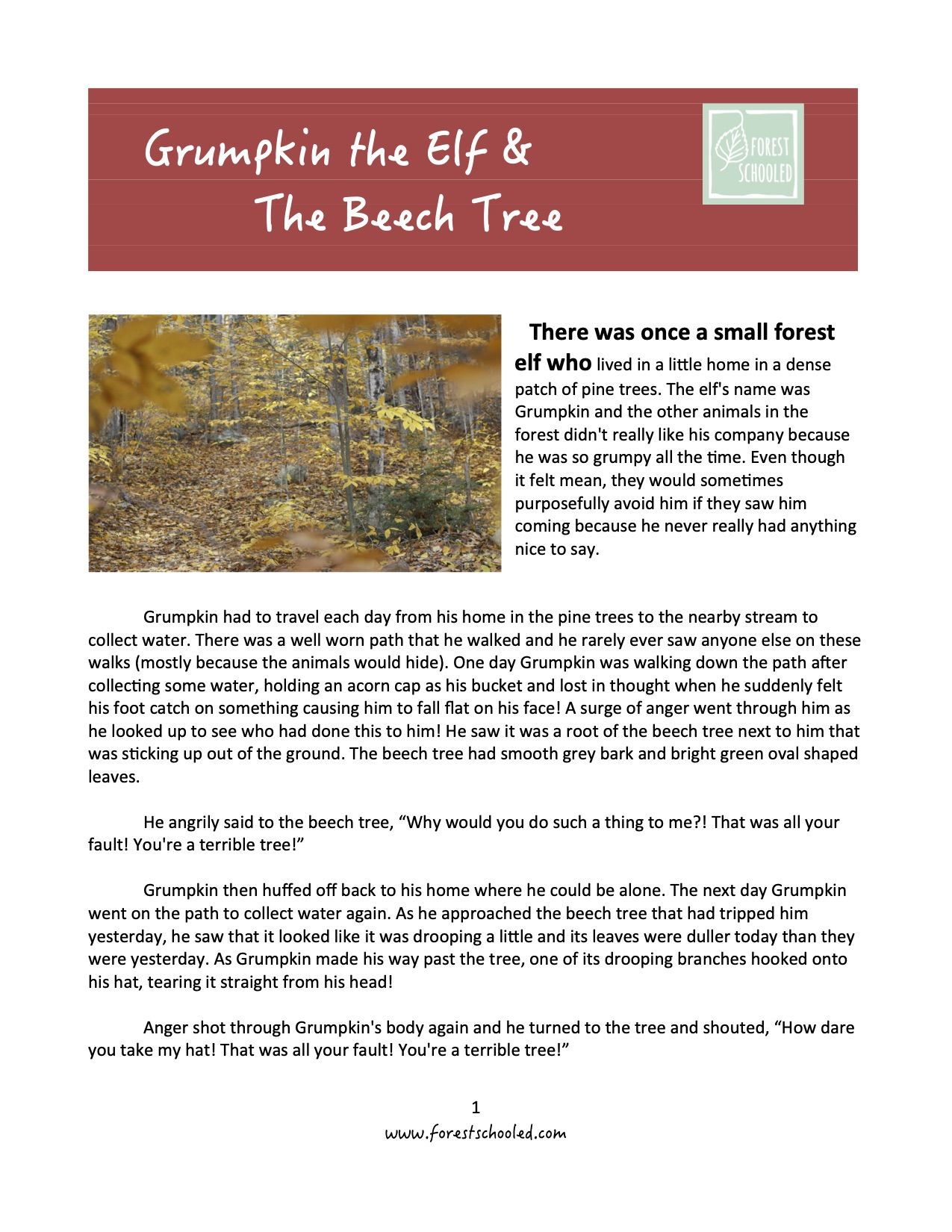
After telling the story, I asked the children, "Do you believe that we can hurt others without touching them, without hitting or kicking, but with the words we use?" They all agreed yes... And I asked, "Have any of you ever felt like Grumpkin the Elf from the story and what did you do?"
One girl said, "I get mad at my sister and shout at her." I asked, "How did you feel after?" She said, "Good." I then asked, "How did your sister feel?" She said, "Bad."
So I asked the group, "What can you do to make yourself feel better AND not hurt other people when you're upset?"
They suggested things like take deep breaths, have some time alone, go and read, scream into a pillow, kick something (nonliving) along the floor...
So it felt like we were making some progress towards greater group cohesion and kindness.
But then.......
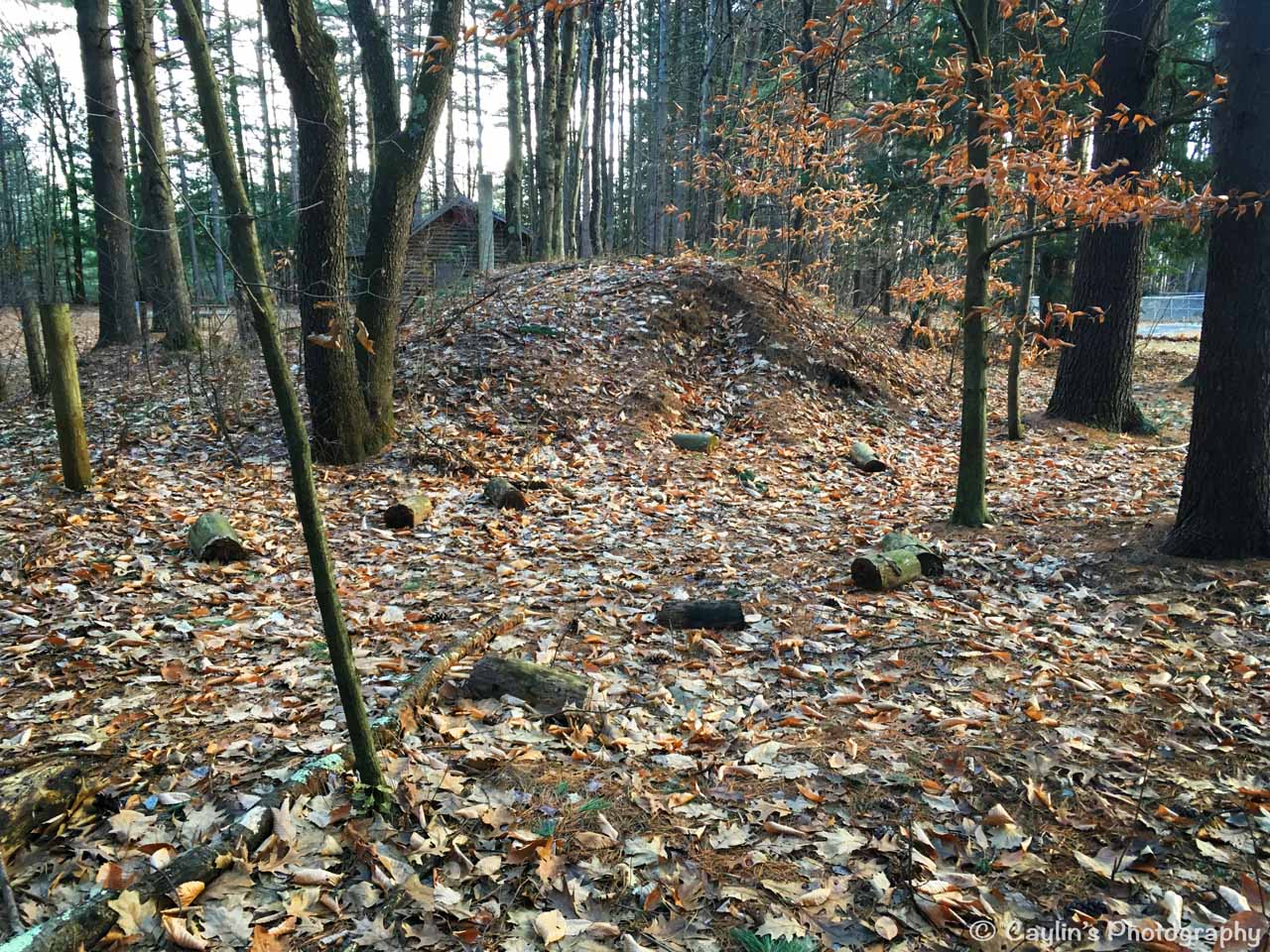
I observed children playing on a bank, pushing and shoving each other off the hill. We are a mixed age group so some of the younger children who were unaware of the "rules" of the older kid's game wandered up the bank and were unexpectedly thrust off. They weren't hurt, but were certainly surprised and upset by it and one started to cry. And on top of that some of the kids were pulling on one of the young trees so forcefully that it was about to snap and break. Not to mention, many of the plants that had adorned the bank had been stomped on or ripped from the soil. It was a scene I was not okay with...
So I intervened. I loudly called, "STOP!!" as I knelt down next to a younger kid who was crying. I said, "I'm noticing some people are upset. Even if we are having fun, someone else might not be. Is there anything we can do differently here?"
But a few of the children ignored my comment and went back to their game, laughing and giggling. I could see some of the others were upset that their friends were ignoring their tears as well as me. And I started to feel my own frustrations rise at what I perceived to be unkind and disrespectful behavior. I was also sad to see the destruction of the bank, especially since we'd all long agreed to look after the forest as one of our main group agreements.
I decided to take more drastic action. Even though the children had been playing, I felt compelled to interfere with that play and convene a group meeting.
I called everyone back to our log circle. I calmly, but sternly, expressed that I was feeling angry. I said, "I noticed some things that I feel aren't following our group agreements to look after ourselves, look after each other, and look after the forest. I saw rough play that not everyone agreed to participate in, some kids crying and being ignored, and a bank that has been altered so much that the things that had been living there will struggle to continue living there now."
I asked them, "Can you imagine what that would be like? If you were living somewhere and something came along and made it impossible for you to live there any longer?"
That sunk in for many of them. I heard mumbles of "That would stink..." "That would be terrible.."
But a handful of others responded differently and continued to crack jokes and giggle.
That's when I had to take a dose of my own medicine and utilize a strategy for dealing with strong emotions, like anger. I didn't scream into a pillow (though maybe I would have enjoyed that!). Instead I sat there silently just focusing on taking deep breaths.
What happened next utterly surprised me.
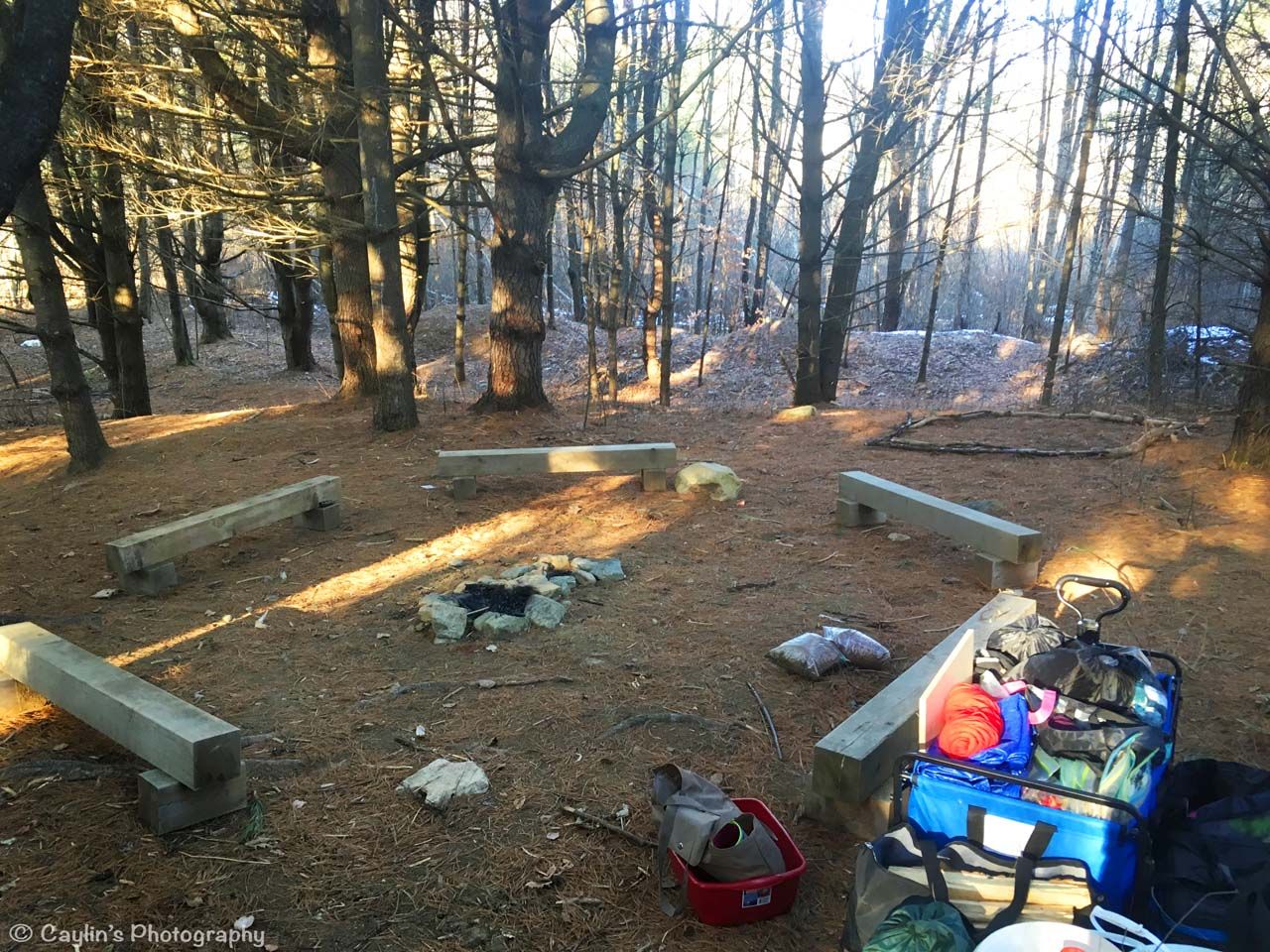
The group started to try to self-regulate. Some of the children started to ask those who were being disruptive to be quiet, though this wasn't all that effective. I continued to sit there silently and a couple children even stood up and came over to me individually to tell me they didn't like what was happening and felt like some of the kids were being disrespectful. One girl even tried clapping her hands like teachers sometimes do to get everyone's attention and expressed she didn't like what was going on.
So I stepped in, feeling much more calm from my deep breaths and few moments of silence, and opened up the floor to the group. I asked, "How do you all feel about what is going on?"
The group started to fall silent as one by one almost everyone in the circle expressed how they felt.
"Bad because it is wasting our play time."
"Frustrated because it seems disrespectful. I can't hear what others are saying."
"I feel sad that part of the forest has been messed with."
And so on...
At that point, thinking quickly on my feet, I invited everyone to take a moment silently to think about something they could do differently to ensure that all felt better - themselves, each other, and the forest. Hands went up eager to share, but I requested time for silence.
After a few moments a few began to share.
"We could cover the bank with leaves again, try to return it to how it was."
"We could not push and shove each other."
"We can include people in games, rather than saying they can’t play even if we feel we can’t get along with them easily."
"We can think about what words we use even if we’re angry and try to choose words that won’t hurt another person."
I then invited the group to choose one thing they had thought of or that had been shared out and to go and do it right then and there. "What would you do differently to look after yourself, each other, the forest? Go and do it."
Many of the children went to the bank and covered it over with leaves again. Some started to play cooperatively with each other. A couple of the older children asked what they could do to help and assisted with collecting firewood for future sessions.
And, though I didn't witness this myself, my colleague, Emma, said that during this time one 6 year old stood silent and still in one of the shelters we'd built. Emma asked him curiously,
"What are doing?" He replied, "Standing here and making the logs happy." Then he reached out and touched one with his hand.
Overall, this experience made me question so much, including the Forest School ethos, or at least my interpretation and execution of it. Can you really allow children that much freedom without it becoming Lord of the Flies? Are there times where being an authority figure is necessary? And how can you be that if you’re not seen as such in the ways children may be used to at home or at school? How do you deal with feeling disrespected by children without turning to systems of rewards and punishments? And how can you be careful about expressing values that are important to you that may not be important to others, especially children, without imposing them?
All questions that are still swirling around in my head that will probably never have definitive answers. But one thing I managed to take decisive action on was introducing the group agreements in a more tangible way the next session. Thus, lo and behold our new Group Agreement Flags, written and agreed to by the children themselves, that adorn our Forest School site each week now to serve as gentle reminders of our ever evolving relationships with ourselves, each other, and the forest...
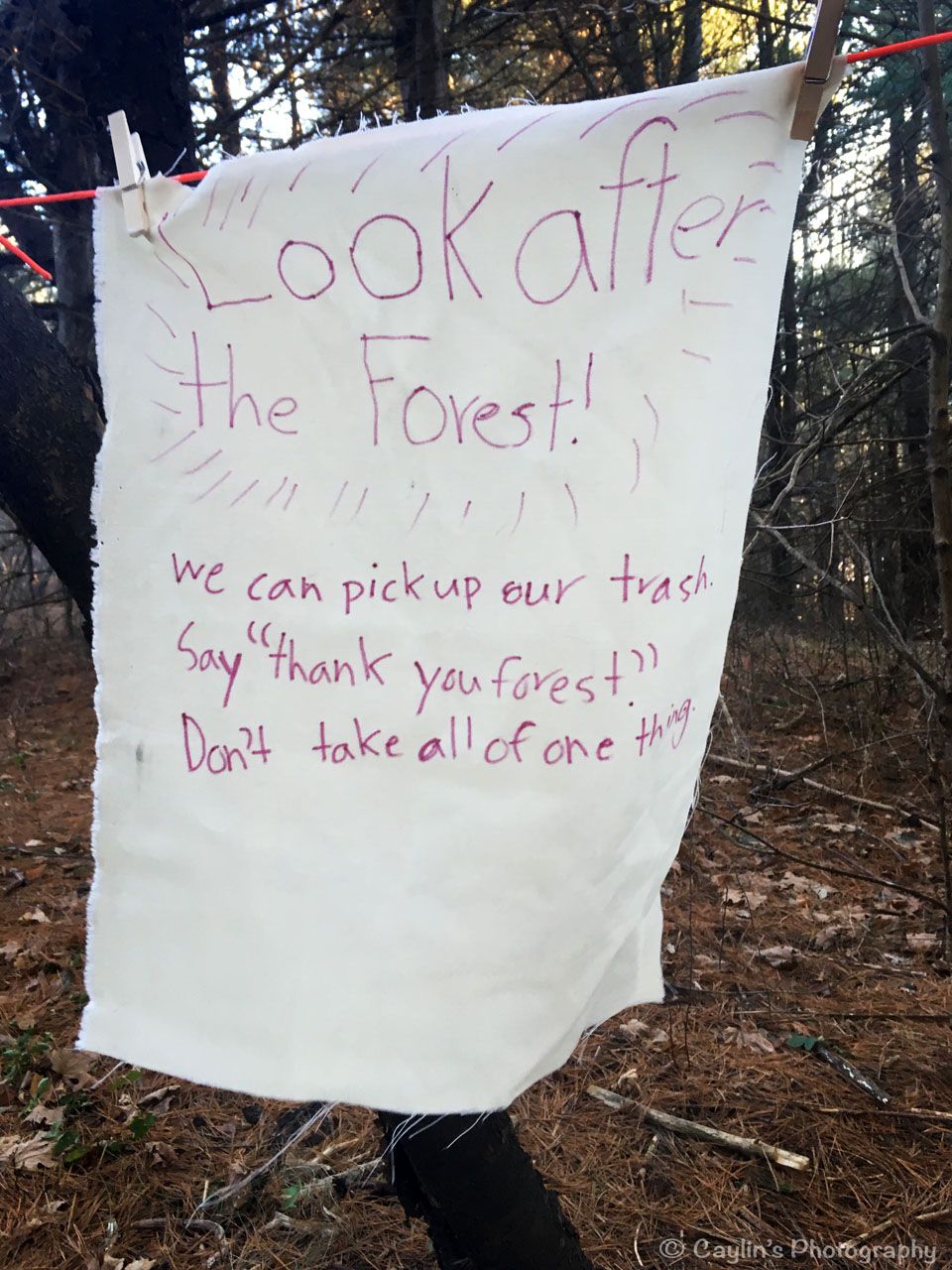
More Posts
WANT TO GET FOREST SCHOOLED TOO?
Subscribe to my email letters, something special from me to you so we can learn together. Each one is filled with heart-felt stories from the forest, resources you may find useful, and things that hopefully bring a smile too.
Thank you!
© by FOREST SCHOOLED
